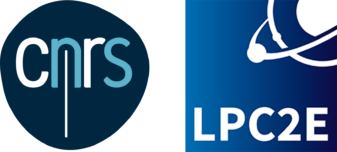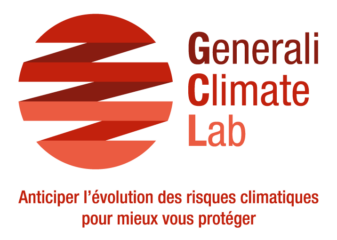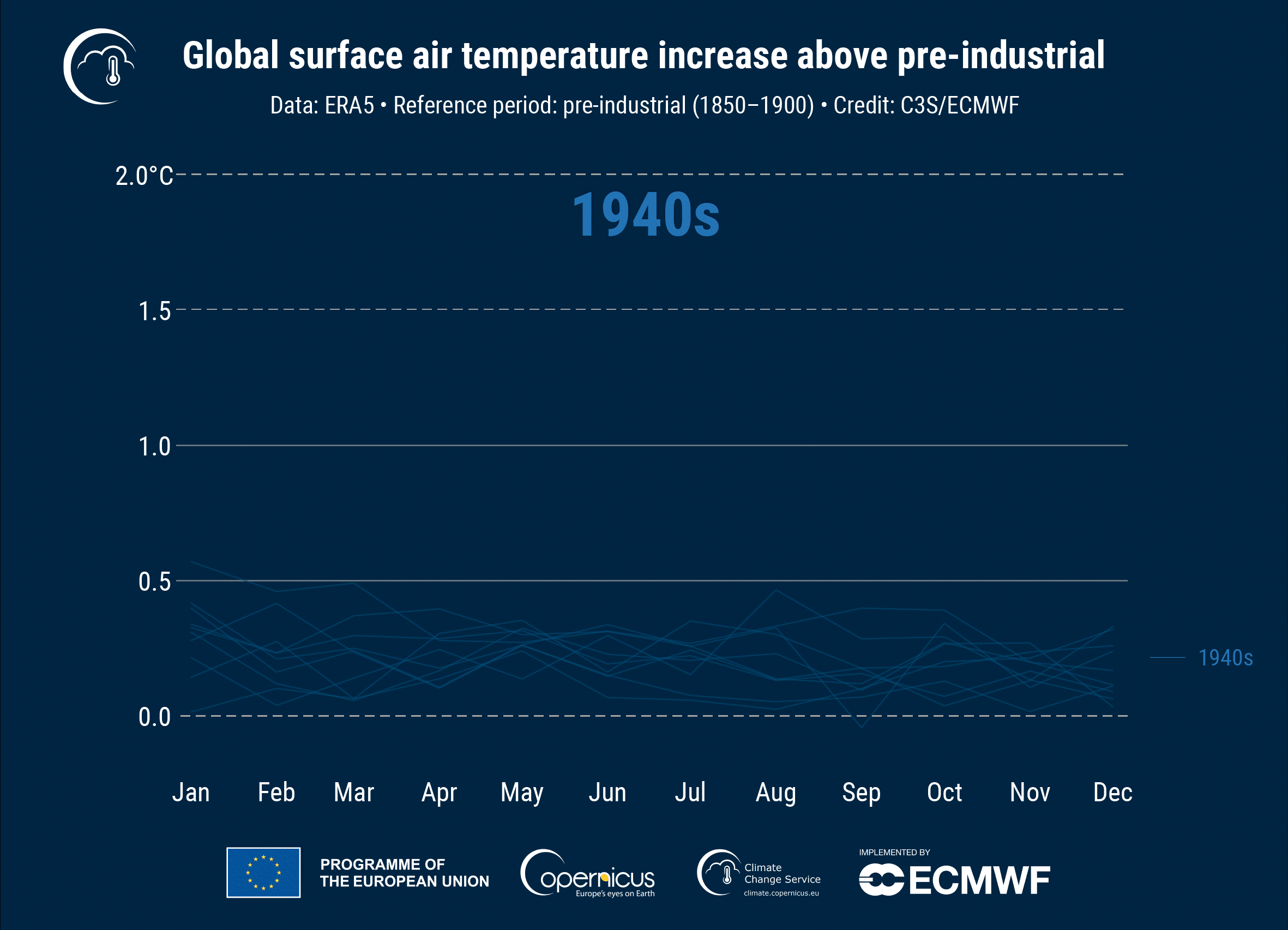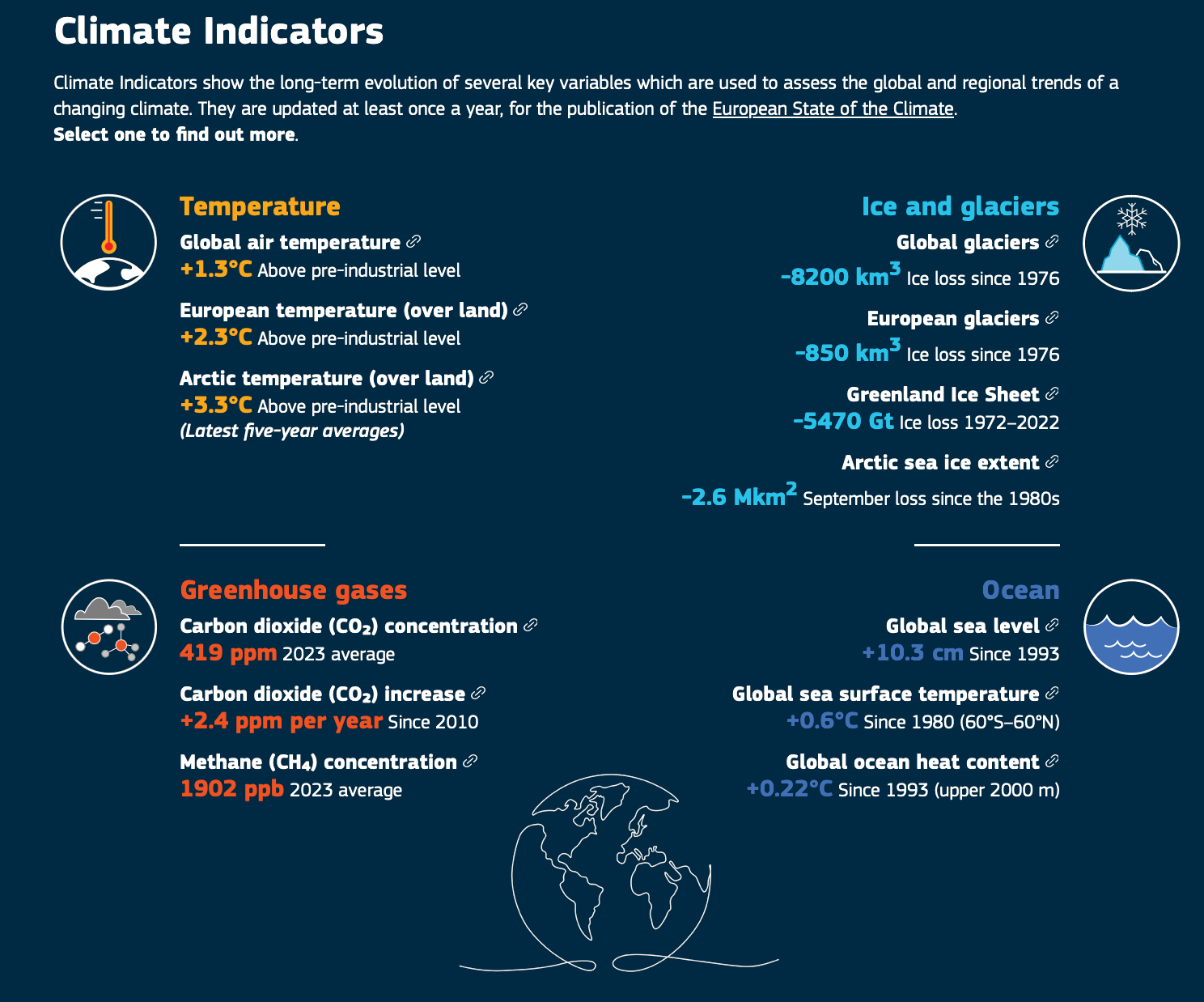Partners

The Generali balloon of Paris, the fruit of an original partnership between the insurer Generali, the City of Paris and the company Aerophile, has become a veritable flying laboratory over the years. Today, it is at the heart of a scientific consortium bringing together prestigious partners such as ECMWF-Copernicus, ICOS, CNRS via its LPC2E laboratory and others.
City of Paris
Paris City : a long-standing partner in the fight against air pollution and climate change
Committed to AEROPHILE from the outset, the City of Paris has provided a site in André-Citroën Park for the installation of the Generali Balloon of Paris. It is operated by the company Aéroparis.
Located in the Parc André Citroën, in the 15th arrondissement of Paris, the balloon was installed as part of the festivities for the year 2000, originally welcoming a large audience to enjoy a bird’s-eye view of the capital at an altitude of 150 meters. It has become a fully-integrated tourist attraction in its own right. To date, 1.5 million passengers have been welcomed aboard.
As well as being a much-appreciated attraction, the balloon is also a scientific and educational tool for raising Parisians’ awareness of air quality.
Since 2008, in collaboration with Airparif and CNRS, the balloon has become an easily visible indicator of air quality. It changes color according to pollution levels: from blue (good) to violet (extremely bad), passing through green (average), yellow (gradient), red (bad) and burgundy (very bad).
Since 2013, the balloon has become an innovative laboratory in the heart of the city, the only one of its kind in the world, measuring various air pollutants, including fine particles. The balloon not only provides access to information on air pollution, but also offers a unique opportunity to study the composition of different layers of the atmosphere.
Finally, the Generali balloon of Paris now supports research about climate change. Since 2024, the balloon has been measuring the main greenhouse gases as part of a partnership with the European research program ICOS Cities. And since 2025, it has been displaying global warming indicators on its envelope in partnership with ECMWF (European Centre for Medium-Range Weather Forecasts), the organization in charge of the Climate and Atmosphere components of the European Copernicus program.
The success of the Generali balloon of Paris has made it an excellent tool for raising awareness of environmental issues, particularly air quality and, more recently, global warming.
It is important to underline the exemplary joint mobilization of public and private actors for the benefit of Parisians. Numerous players with recognized expertise have been mobilized for this project: the AEROPHILE company; Airparif, the association in charge of air monitoring and public information in the Paris region; research institutes and programs (CNRS, ICOS, ECMWF-Copernicus); and, of course, the insurer GENERALI, sensitive to environmental issues, which is financially supporting this fine project.
Scientific Consortium
ECMWF / Copernicus
The European Centre for Medium-Range Weather Forecasts (ECMWF) is a world leader in global numerical weather prediction, providing high-quality data for weather forecasting and environmental monitoring.
This international organization was founded 50 years ago. Its activities include research, the operational production of forecasts and the operation of a computing center (which houses the world’s largest archive of weather and climate data, now exceeding one exabyte). This research and operations center is active 24 hours a day, 7 days a week, focusing on global weather forecasts for the medium (beyond 3-5 days) and long term (several months).
ECMWF provides forecasting models, data analysis and products to governments, researchers and industry. It offers services such as numerical forecasts, observational data and climate forecasts.
Since 2014, ECMWF has been managing two of the six Copernicus Program Services on behalf of the European Commission:
. the Copernicus Atmosphere Monitoring Service (CAMS) provides information on the chemical composition of the atmosphere worldwide, covering areas such as air quality, greenhouse gases, solar energy and climate forcing related to changes from the pre-industrial era.
For further information :
www.copernicus.eu/en/copernicus-services/atmosphere,
https://atmosphere.copernicus.eu
. the Copernicus Climate Change Service (C3S) provides reliable information on past (global and regional Europe/Arctic reanalyses, data sets on essential climate variables ECVs…), “present” (seasonal forecasts…) and future (global and regional projections, as well as tools enabling decision-makers and businesses to implement climate change mitigation and adaptation strategies.
For further information, visit
www.copernicus.eu/en/copernicus-services/climate-change,
https://climate.copernicus.eu
Copernicus is the European Union’s Earth observation program, launched in 2014. It aims to provide satellite data to monitor the environment and climate, support crisis management and environmental policies.
ECMWF uses data from Copernicus to refine its climate forecasts and research. Together, they offer crucial services for governments, researchers and businesses, while supporting European climate policies.
Today, C3S & CAMS have several hundred thousand direct data users, as well as reaching the general public in Europe and worldwide (air quality forecasts on CNN International, monthly climate bulletins / global climate highlights / European State of the Climate…).
More recently, ECMWF is working with the European Space Agency (ESA) and EUMETSAT to implement the European Commission’s Destination Earth initiative. In particular, ECMWF is working on the development of digital twins of the Earth.
For further information
ecmwf.int
copernicus.eu
CNRS laboratories
Laboratory of Physics and Chemistry of the Environment and Space (LPC2E)

It is one of France’s leading space laboratories, working in close partnership with the Centre National d’Etudes Spatiales (CNES) for the design, production and scientific exploitation of space instruments. LPC2E’s research activities focus on the study of the space environment in four areas:
- Physico-Chemistry of the Earth’s Atmosphere
- Physico-Chemistry of Planetary Environments
- Space plasma physics
The LPC2E develops the instrumentation required for its research. Research activities are based on the development and scientific exploitation of instruments used on the ground (laboratory studies, large instruments), on board aircraft simulating microgravity, and under balloons. The laboratory brings together around thirty researchers and teacher-researchers, a dozen PhD and post-doctoral students and some 40 engineers, technicians and administrative staff.
The LOAC, a fine particle measurement instrument installed in the balloon, was developed by LPC2E.
Laboratory for Climate and Environmental Sciences (LSCE)

The Laboratoire des Sciences du Climat et de l’Environnement (LSCE) is a joint research unit (UMR 8212) of the Commissariat à l’Énergie Atomique et aux énergies alternatives (CEA), the Centre National de la Recherche Scientifique (CNRS) and the Université de Versailles Saint-Quentin en Yvelines (UVSQ), located on the CEA’s Orme des Merisiers site at the heart of the Paris-Saclay university campus. It is part of the Institut Pierre-Simon Laplace (IPSL).
The LSCE brings together over 350 researchers, engineers, technicians and administrative staff, including more than 150 permanent staff from the 3 tutelles and several dozen PhD students.
LSCE is organized into three scientific themes, each comprising 4 to 6 teams:
Archives and Tracers
Biogeochemical Cycles and Environmental Transfers
Climate and Cycles – Modeling their variability and interactions
The national ARTEMIS instrument (LMC14) dedicated to measuring carbon 14 is also attached to LSCE.
LSCE is responsible for measurements of the main greenhouse gases in the ICOS program.
Interuniversity Laboratory of Atmospheric Systems (LISA)

LISA (Laboratoire Interuniversitaire des Systèmes Atmosphériques), UMR CNRS 7583, is a joint research unit of Université Paris-Est Créteil, Université Paris Cité and CNRS. It is part of the Observatoire des Sciences de l’Univers EFLUVE and the IPSL research federation.
Its main research themes focus on understanding the functioning of terrestrial and planetary atmospheres, and the impacts of human activities on atmospheric composition. The methods used are based on real-atmosphere observations, experimental laboratory simulation and numerical modeling.
Ozone is measured on the Generali Balloon of Paris using a LISA instrument.
ICOS

As part of the European ICOS-Cities (Integrated Carbon Observation System) project, a unique device for measuring the main greenhouse gases (CO2, CH4, H2O) has been installed on board the Generali Balloon of Paris.
30 European universities and research institutes, all references in the field of greenhouse gases, have joined forces in this ICOS-Cities project, financed by the European Union, with the aim of :
- collect and evaluate measurement and modeling approaches for monitoring greenhouse gas (GHG) emissions in densely populated urban areas;
- support the European Green Deal and aim to develop tools and services for cities in support of emission reduction efforts;
- create a model for urban GHG measurements in Europe;
- provide the knowledge needed to create tools and services for cities, citizens, policy-makers and educators.
The ICOS-Cities project has three pilot cities: Paris, Zurich and Munich.
Since March 2024, ICOS has been carrying out intensive measurements of the main greenhouse gases (CH4, CO2, H2O) in Paris, in conjunction with LSCE, the French Climate and Environmental Sciences Laboratory. It will be accompanied by a social survey questionnaire sent to over 2,000 citizens, and a workshop to imagine and discuss useful tools and services for Paris.
Generali
Generali, an international insurance leader committed to sustainability
As a committed Group, Generali intends to act as a positive force in building a more resilient and equitable society. Sustainability is integrated into all the company’s actions and decisions.
Faced with the growing complexity and globalization of the risks inherent in today’s lifestyles, Generali has been integrating sustainable development into all its activities since the early 2000s, notably by raising awareness and helping as many people as possible to carry out preventive actions that help to reduce risks. Generali aims to be its customers’ partner throughout their lives, contributing to their personal and professional protection, as well as to their future plans and the transfer of their assets.
Promoting research and innovation in healthcare
In 2013, Generali was the first insurer in France to take an interest in the impact of air quality on health by becoming a partner of the Great Tethered Balloon of Paris, an air quality observatory, now known as the Generali Balloon of Paris.
For almost 10 years, Generali has been helping to fund research by the CNRS into the evolution of fine particles in the atmosphere, based on measurements taken on board the balloon. In the wake of this partnership, Generali has joined forces with the doctors at l’Association Santé Environnement France (ASEF) to provide its customers with information on the health impacts of environmental pollution.
Covid-19 highlighted the need to accelerate healthcare research and promote access to care for all. That’s why, in 2021, Generali was a co-founder with Sanofi, Orange and Cap Gemini of Future4Care, a digital health open-innovation ecosystem unique in Europe. The aim is to develop e-health solutions and promote their market launch, for the benefit of all, especially patients and healthcare professionals.
Future4Care comprises a start-up gas pedal and an institute bringing together leading figures from the world of healthcare. Already 65 start-ups have joined the gas pedal, which aims to reach cruising speed with around 100 start-ups. Future4Care’s ambition is to become the European hub that embodies progress in digital healthcare.
Deploying new services to preserve health
The future 4 care ecosystem led to a meeting with Meersens, a start-up specializing in exposome analysis (the combination of a person’s genetic capital and the environmental factors to which he or she is exposed), which is developing digitalized advice solutions for preserving health in the face of widespread pollution.
A bridge has thus been created between research advances aboard the Generali Balloon of Paris and the development of a new personalized environmental health information service.
From September 2022, as part of its social action programs, employees of companies insured by Generali will benefit from an app, Meersens Pro. The app covers 6 themes: air quality, water, noise, pollens and UVs. Each theme is dealt with in the form of benchmarks, diagnosing the environmental factors in which people live, and giving advice on how to avoid risks as much as possible.
Eventually, 300,000 employees of companies insured by Generali and covered by its social action program will be able to benefit from Meersens Pro. Initial results from the first wave of deployment are encouraging, with a 70% opening rate for the launch e-mail.
This environmental health information service will join other risk prevention tools developed by Generali, such as the website Ensemble Face aux risques (EFAR) offering a free diagnosis, accessible to all, of a building’s exposure to risks depending on its location (flooding, drought, earthquake, forest fire, hail, nuclear…) and personalized advice.
More broadly, as part of its preventive health policy for the employees of its group health insurance customers, Generali offers a wide range of services grouped together in its Be Zen program (teleconsultation, assistance, healthcare networks and preventive services to improve the health of employees and support them in the event of a setback, etc.).
Sustainability in all its forms at Generali
Today, Generali is :
- A responsible insurer by developing new sustainable solutions and implementing actions promoting the sustainable transition of SMEs. Since 2021, Generali has been organizing the prix EnterPRIZE, which recognizes small businesses committed to active policies of social and environmental responsibility in 10 European countries and Asia. To improve our understanding of risks, Generali invests in technologies and improves risk modeling to anticipate them more effectively. The Generali Climate Lab is at the forefront of this approach, monitoring climate risks and proposing tailored insurance solutions.
- A responsible investor that aims to fully integrate ESG (Environment, Social and Governance) criteria into its investment activities, with the objective of a carbon-neutral investment portfolio by 2030. The company focuses on sustainable finance and invests in energy sovereignty, the transition economy and climate resilience.
- A responsible employer promoting dedicated actions to create, increase and nurture inclusion, upskilling and new ways of working;
- A responsible distributor that commits its intermediaries (tied agents, salaried advisors, brokers and independent wealth management advisors) to actions that contribute to environmental preservation, diversity and inclusion.
- A responsible corporate citizen who, through its foundation, The Human Safety Net, is developing a hub of social innovation to help the most vulnerable populations unleash their full potential and enjoy equal opportunities in life.
Generali Climate Lab

Over the past 10 years, the Generali Climate Lab has launched a number of preventive services that have now proved their worth, including :
- Generali Prévention Météo: a free weather alert service for all customers in metropolitan France, developed in partnership with Predict Services, a joint venture of Météo France. More than 1.2 million Generali customers benefit from a highly accurate weather warning system, at local level, in real time, in the event of major storms, heatwaves, forest fires, storms or floods. An average of 4 million SMS messages are sent each year. In the event of a large-scale event, Generali provides practical advice before, during and after the event, by text message or telephone call when the situation is severe.
- The service Ensemble Face aux risques which provides all French citizens with free diagnoses of their exposure to climatic hazards, based on their postal address. The fruit of 7 years of research, the geolocation service will be enhanced in 2024 by adding hail to the climatic perils already included: floods, drought, forest fires and earthquakes. Users can then access advice tailored to their specific exposure. By 2024, 285,000 French people had diagnosed their risk exposure on the platform.
Aerophile
Founded in 1993 by Jérôme Giacomoni and Matthieu Gobbi, polytechniciens and engineers at “Ecole des Ponts et Chaussées”, the AEROPHILE group designs, manufactures, sells and operates attractions for the general public, notably large tethered balloons and Aerobars. Since 2008, AEROPHILE has also been developing activities focused on air quality, with its air quality balloons and an innovation to combat fine particle pollution, the Para-PM.
AEROPHILE is the world leader in tethered balloons, with more than 120 balloons installed in nearly 40 countries. The AEROPHILE group also operates seven live balloons: in France, the Generali Balloon of Paris, the PanoraMagique balloon at Disneyland Paris and the Tuileries Cauldron-balloon, Olympic torch-bearer for the Paris 2024 Games; in the United States, the balloons at Great Park near Los Angeles, Walt Disney World in Orlando and the San Diego Safari Park; finally, in Cambodia, the balloon at the famous Angkor temples site. The AEROPHILE group is thus the world’s largest lighter-than-air carrier, with over a million passengers a year.
The company also took an early interest in the subject of air pollution. Since 2008, its air quality balloons have been measuring air pollution in cities and informing citizens in real time. In Paris, for example, in addition to its tourist function, the Generali Balloon of Paris also serves as an instrument for measuring air quality in the capital. And after 10 years of research, AEROPHILE’s latest innovation, the Para-PM, was launched in 2022. This is an air purifier that combats fine-particle air pollution in outdoor or semi-open spaces. It can be used to purify the air in many sensitive areas, such as subways, school playgrounds, factories, building sites, underground parking lots and so on. One of its applications, the Aerophiltre, is a piece of street furniture, a depolluting shade that resembles a veritable “pure air fountain”. This innovation was chosen as part of the SOLIDEO (Société de Livraison des Ouvrages Olympiques) tender to purify the air in the Place des Athlètes during the 2024 Olympics in Saint-Denis.
In January 2023, the AEROPHILE group celebrated its 30th anniversary!
And in 2024, AEROPHILE had the honor of manufacturing and operating the famous Tuileries Cauldron-balloon, carrying the Olympic flame during the Paris 2024 Games.
More information on www.aerophile.com

